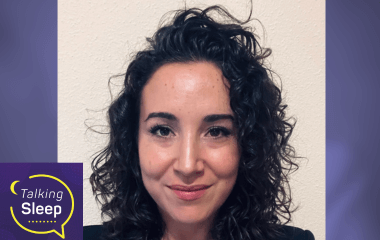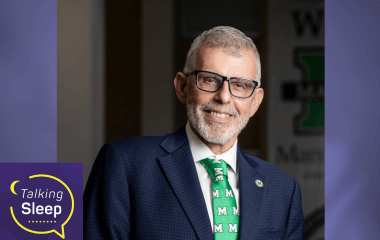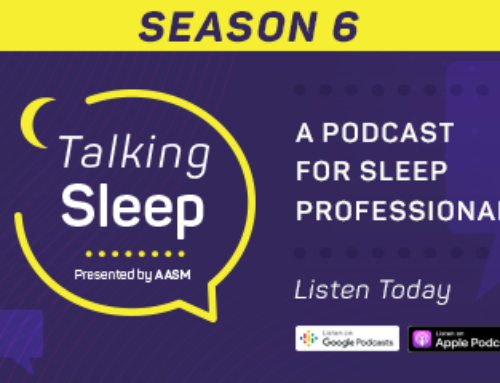Season 6 | Episode 8
LAURA CASTILLO AND DR. DAVID GOZAL, GUESTS
We know that there are a billion people in the world with undiagnosed obstructive sleep apnea (OSA) and that it simply isn’t practical to have every person undergo a sleep study. Are there other methods that might be more efficient identifying those at the highest risk of OSA? Laura Castillo is a chemist who has studied biological matrices to identify biomarkers for obstructive sleep apnea. Her research involves analyzing sweat and she has found that there are specific markers for those with severe OSA and those without any OSA. Dr. David Gozal has been working in this field for many years and has published extensively. He has also studied urine proteomics as a method to identify sleep disordered breathing in children.

Laura de los Santos Castillo Peinado obtained her Chemistry Bachelor Degree in 2016, followed by a Master’s Degree in Advanced Chemistry (2018), both at the University of Córdoba (Spain). Afterwards, she enrolled in the PhD program in Chemistry at the Department of Analytical Chemistry from the University of Córdoba (Spain). During that period, from 2018 to 2023, she developed her predoctoral research on Clinical Metabolomics and participated as a researcher in several projects. The main aspects on which her predoctoral research was focused were, vitamin D metabolism analysis and sleep apnea characterization. However, during the last year of her PhD, she realized that analysis of experimental data was the part she liked the most about scientific research, so she started a new formation on Data Analytics Bootcamp from Upgrade Hub, which led her to her current situation as a Data Analyst in BEONx (Hospitality Industry, Spain).

Dr. David Gozal is currently the Dean of the Joan C. Edwards School of medicine and Vice President for Health Affairs of Marshall University. This role follows multiple previous leadership positions at Tulane University, University of Louisville, University of Chicago and University of Missouri. Dr Gozal’s research interests include projects such as gene and cellular regulation in hypoxia and sleep disruption, murine models of sleep disorders, and genomic and proteomic approaches to clinical and epidemiological aspects of sleep apnea in both adults and children. In addition, he has pioneered biomarker discovery and machine learning approaches for the diagnosis of sleep apnea across the lifespan. More recently, he has begun exploration of the role of the gut microbiome and circulating exosomes as mechanistic effectors and biomarkers in sleep disorders and associated morbidities.
Resources
- Castillo-Peinado, L. S., Calderón-Santiago, M., Jurado-Gámez, B., & Priego-Capote, F. (2023). Journal of Sleep Research, e14075. Changes in human sweat metabolome conditioned by severity of obstructive sleep apnea and intermittent hypoxemia. https://doi.org/10.1111/jsr.14075
- Becker L, Kheirandish-Gozal L, Peris E, Schoenfelt KQ, Gozal D. Sleep Med. 2014 May;15(5):541-9. Contextualised urinary biomarker analysis facilitates diagnosis of paediatric obstructive sleep apnoea. https://doi.org/10.1016/j.sleep.2014.01.010





